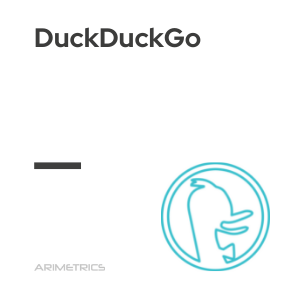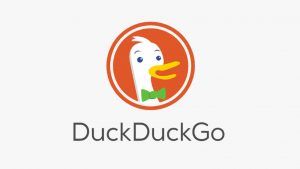
Definition:
DuckDuckGo
is an independent search engine whose main feature is that it opposes collecting information from its users and focuses its philosophy on their privacy. It is available in 97 languages and, in addition to the search engine (which can be used with any browser), it has a mobile application and extensions to block other platforms such as Google or Facebook.
Its interface is very simple, with a homepage starring its logo, the Dax duck, and a space for queries in between. Some of the messages that characterize DuckDuckGo, such as “The search engine that doesn’t track you” and “Privacy, simplified”, already appear on the Home page.
The search results page is very similar to that of Google or any other search engine. Its developers ensure that this is so that the user who decides to switch to DuckDuckGo for its advantages in terms of privacy does not notice such a drastic change.
History of DuckDuckGo
The search engine was founded in 2008 by Gabriel Weinberg, an MIT graduate who had previous experience with technology companies. Weinberg defends the advantages of DuckDuckGo in each interview he grants and assures that the company has been profitable since 2014, and that it also does so without the need to interfere in the privacy of Internet users.
The company is based in Valley Forge, Pennsylvania (USA) and currently has more than 300 employees. Evolution of DuckDuckGo:
- Initial growth (2008-2013): Initially, DuckDuckGo started as a small project, but quickly gained attention for its focus on privacy protection. Unlike other search engines, DuckDuckGo does not track user activity or store personal information, which attracted an increasingly privacy-conscious audience.
- Profitability and expansion (2014): In 2014, Weinberg announced that DuckDuckGo had reached profitability, a significant milestone for the company. The company achieved this financial success without compromising its commitment to privacy, demonstrating that it was possible to operate a profitable business without exploiting user data.
- Rise in popularity (2015-2019): During these years, DuckDuckGo experienced a notable increase in the number of users, driven by an increased awareness of online privacy. The company launched browser extensions and mobile apps to facilitate access to its search engine from any device.
- Innovations and new features (2020-present): DuckDuckGo has continued to innovate, introducing features such as connection encryption and tools to block online trackers. The company has expanded its team, which now numbers more than 65 employees, and continues to operate from its headquarters in Valley Forge, Pennsylvania.
How DuckDuckGo works

The same goes for advertising. Although it has ads at the top of the page, it treats the user as if it were the first time they accessed the search engine (even if it is not) and is not based on a history of experiences.
With this system, the logical thing is that advertisers do not risk very high amounts of money for advertising that they can barely control who arrives. Therefore, DuckDuckGo recognizes that it obtains income through other means.
For example, you get a small commission for each click on one of Amazon’s or eBay’s numerous affiliate pages, although, he insists, without revealing the author of the search or any of its features. It also has private investors.
Regarding locations, it does not have its own geo-monitoring service and offers maps thanks to the collaboration with Apple Maps.
Main features of DuckDuckGo
- Personal data. Its main hallmark is that it does not collect information from users. His main criticisms are of Google and Facebook for “persecuting users” and bombarding them with “invasive advertising” all over the web. It exposes the danger of this tracking to manipulate election results, discriminate against certain groups or sell data in bulk to some company with bad intentions.
- Advertising. As we have already mentioned, it contains ads at the top of the page, but not personalized, since it does not have demographic, geographical (located by countries) or interest information. Therefore, advertising messages from other countries may appear, for example.
- Search results. Returns the ones it considers best results without taking into account the personal characteristics of the person making the query.
- The !bangs utility. It is possible to refine searches using search shortcuts, such as !a followed by a keyword to search on Amazon, !w for Wikipedia or !twitter for the well-known social network.
- It has a minuscule percentage of market share that barely reaches 1% in the world, according to the website StatCounter, which does not prevent it from being a platform on the rise. Currently, it adds about 40 million searches a day and increases its revenue annually.
